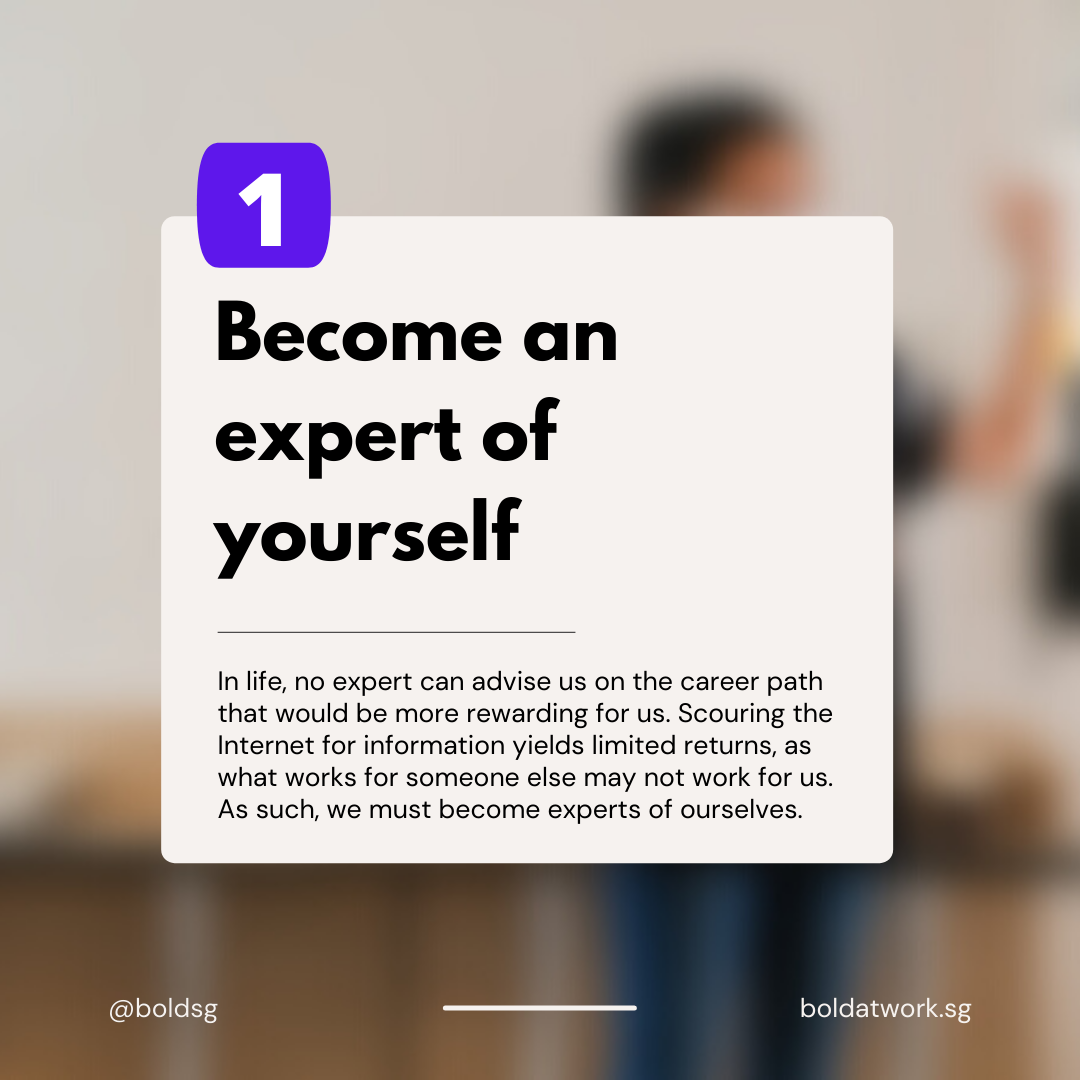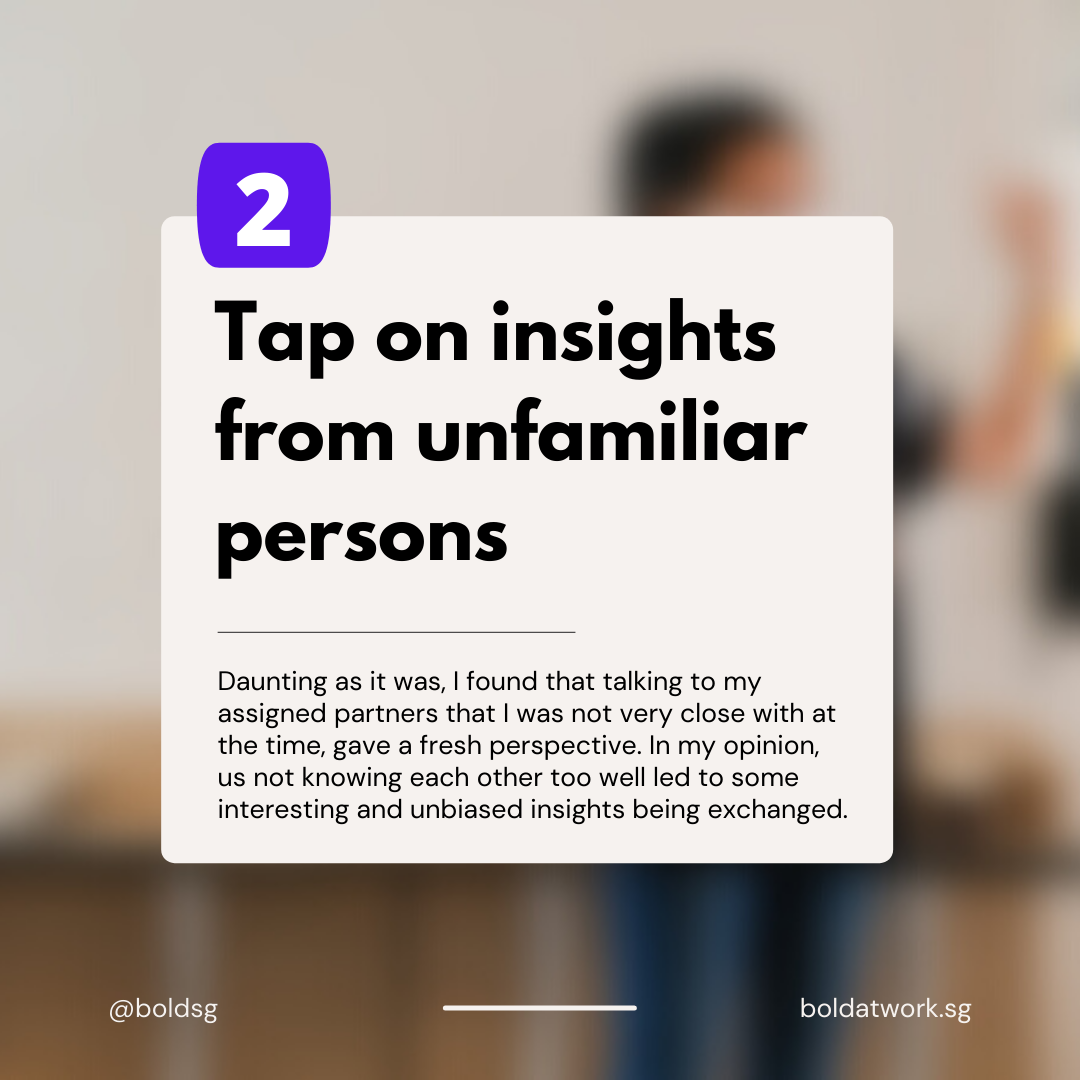Designing Your Life
Written by Nurul Nabilah, YouthTech Trainee
Each of us must have come across this question when we were younger: What do we want to be when we grow up?
At some point, this question matures into crossroads whereby we must make actual decisions that bring us down one path or another. Then the question becomes, when making decisions for the future, how do we proceed?
Hmm… If only life were simpler! Then I would be able to take a quiz and answer a series of questions that will guide me to the answer of a career that would be most fulfilling and rewarding. Unfortunately, that is not the case here. Neither is this a case where the problem can be solved by experts, in which I would be able to hire a professional to tell me the answer. Alas, career decision-making is much more complex than that and here is where design thinking comes in.
Design thinking is a way of solving problems that are intersecting and complex, for which the linkages (and hence cause and effect) may not be obvious. At Stanford, Bill Burnett and Dave Evans were among the first to take the principles and philosophy behind design thinking, and apply them to the very complex problem of answering this very question - what we do with our lives.
In a similar vein, Bold At Work runs ‘Design Your Life (DYL)’, a career design workshop to help its participants navigate their career and life. In December last year, I got to participate in the workshop which took place over the course of two days. Below are two takeaways that I got from attending the workshop with my fellow trainees.
In a sense, in life, there are no experts who can advise us on what is the career path that would be more rewarding and fulfilling for us. Scouring the Internet for information also yields limited returns, as what works for someone else may not work for us. As such, we must then become good at noticing, and becoming experts, of ourselves. Be it through overcoming the trials that we face, or simply taking the initiative to try new things and satisfy our curiosity, there are various ways for us to get to know ourselves best. The clearer we are on what we value, what our strengths and preferences are, the better we are able to design a life and career that works best for us. The best thing is, everyone is unique. So, the answer I craft is uniquely me. Obviously though, getting some input from those around me would also be beneficial and might help me figure myself out faster, which leads me to the second takeaway.
When it comes to decision-making, many tend to seek opinions and advice from their family members or trusted friends. And yet, during the DYL workshop, I noticed that it leaned more towards creating space to reflect and think through one’s decision by themselves with little input from those close to them.
Only later did I learn that this is done deliberately, so as to give participants an opportunity to distinguish between what is truly their desire, versus what are the expectations and beliefs that they may have “inherited” from their parents and those close to them. This is interesting to me because while my own family tends to not want to get involved when it comes to me having to make major decisions (such as when I opted to pursue a Diploma in Polytechnic instead of going on the ‘A Levels’ route), I do know that for some people, their loved ones tend to have an outsized influence when it comes to their decision-making process, even when they have grown into adulthood.
During the workshop, the facilitators assigned the pairings for the sharing and activities. Daunting as it was, I found that talking to my assigned partners that I was not very close with at the time, gave a fresh perspective. In my opinion, us not knowing each other too well led to some interesting and unbiased insights being exchanged. Talking to someone familiar would have resulted in me asserting my arguments here and there, resulting in the conversations going in a safer direction of sticking to my comfort zone and thus limiting myself from going forward. However, gaining advice and opinions from diverse partners eventually led me to the realisation that taking risks could potentially lead to better outcomes for myself.
All in all, the workshop was very beneficial not only for me, but also for my fellow trainees. Aside from it being a fun yet resourceful workshop, it taught me that sometimes, what we think is not achievable can easily be within our reach.
#BeBoldAtWork is a Design Your Workplace series that seeks to cover practical tips, stories and tools that would serve employees and employers to better design how you choose to think, feel and show up in workplaces so as to improve the performances of not only your organisations but also the lives of the people you work with.
If you would like for us to enter your workplaces to provide talks and engagements on workplace wellbeing & career resilience, drop us a note at hello@boldatwork.sg!

